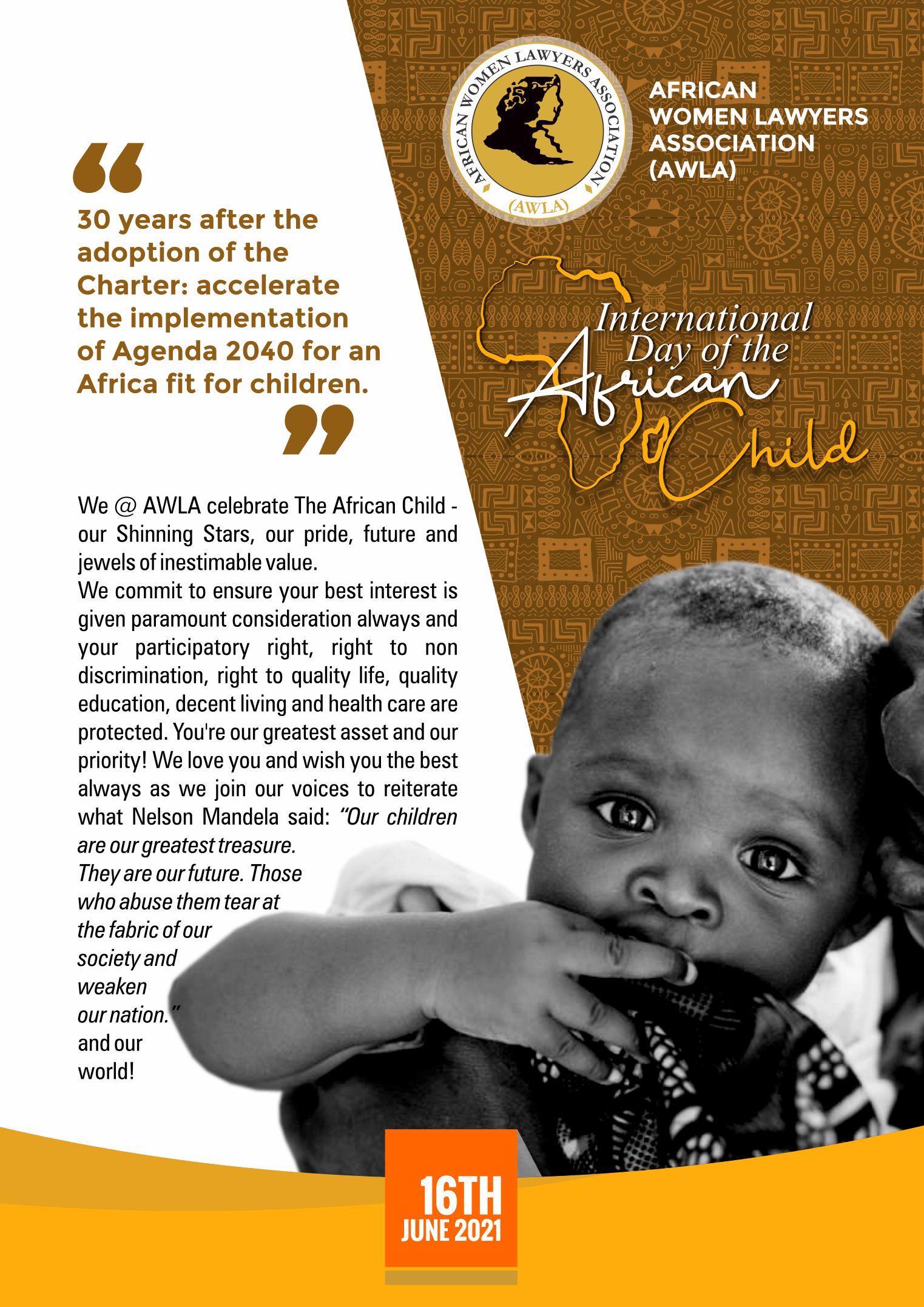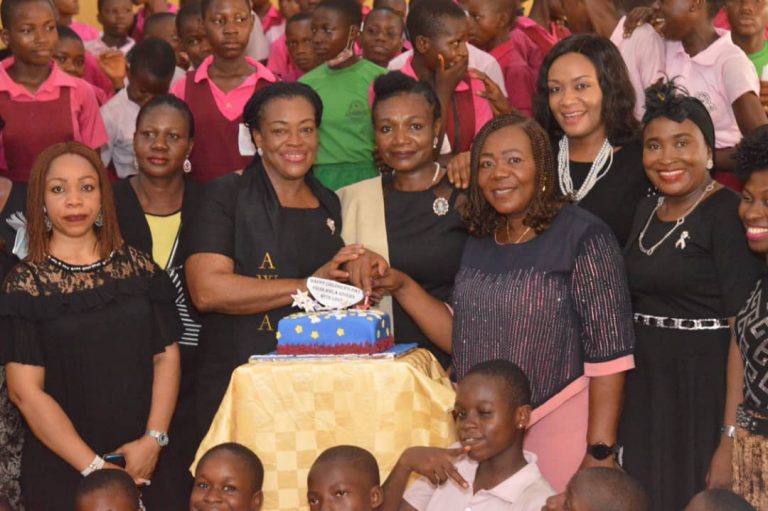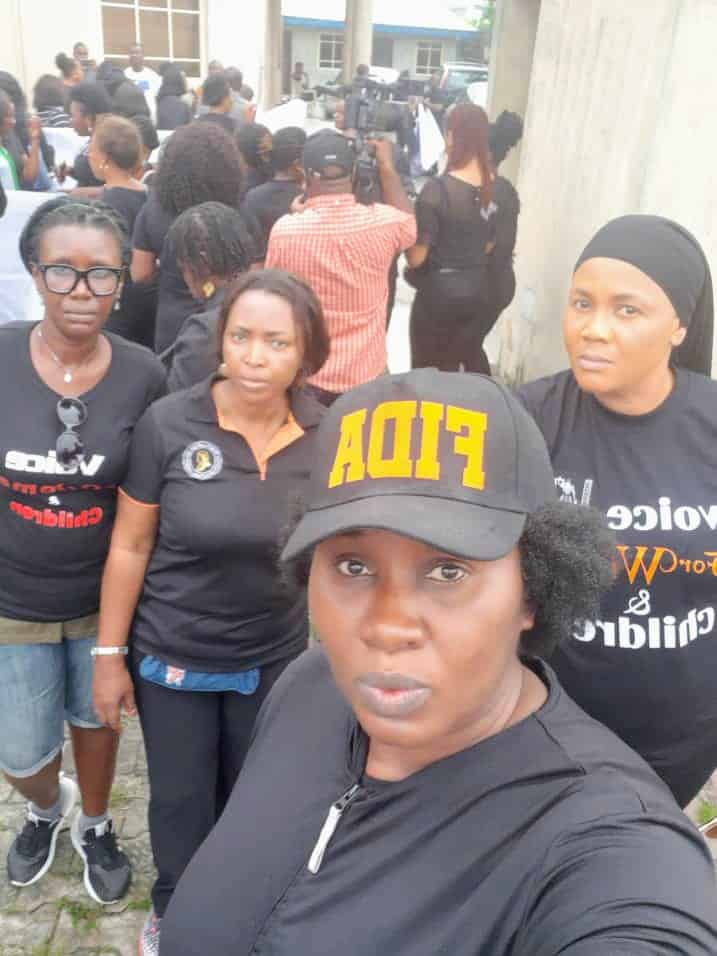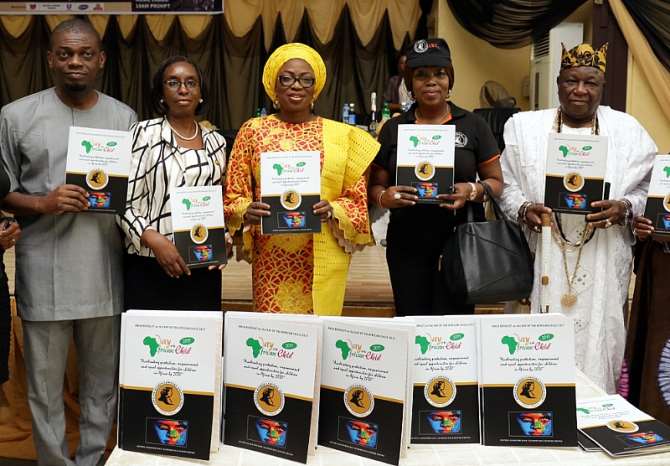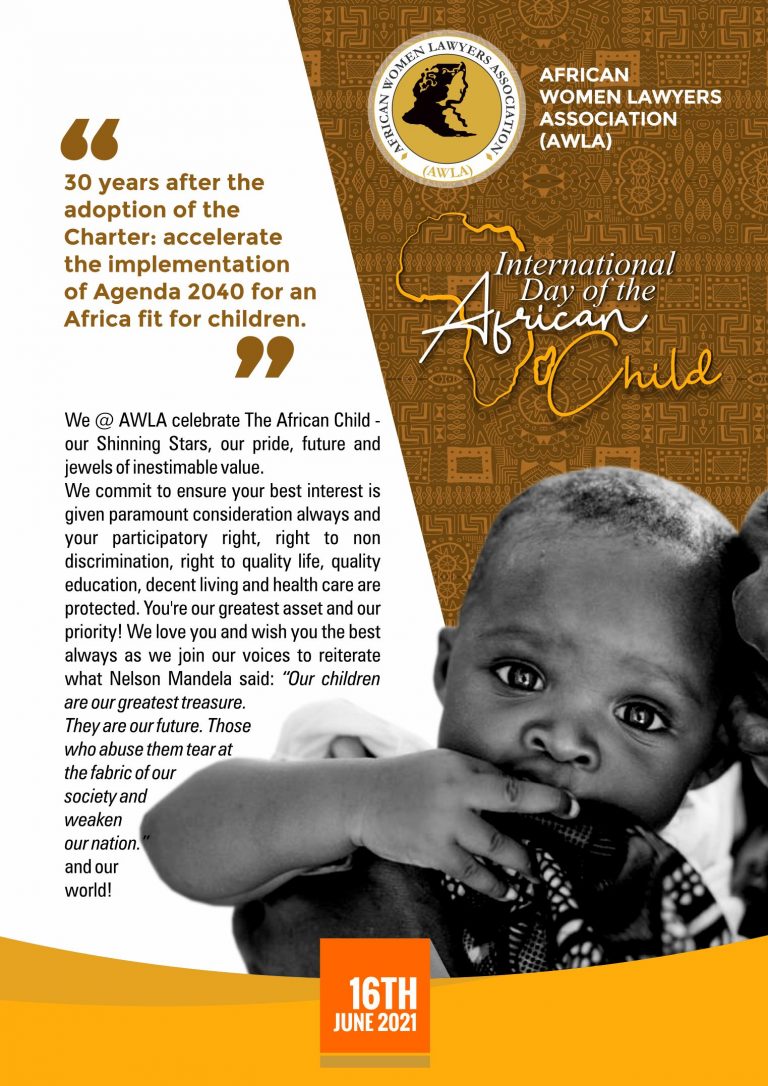AWLA PRESS RELEASE ON DAY OF THE AFRICAN CHILD
DAY OF THE AFRICAN CHILD (DAC)
The African Union set apart
the 16th June for the AU and it’s Member States to commemorate the 1976 student uprising in Soweto, South Africa, where students who marched in protest against apartheid-inspired education, were brutally murdered
Ever since the day has been marked in celebration of the bravery of the African Child whilst putting the spotlight on the challenges of the African Child and proffering solutions as well as galvanizing actions to improve the life and wellbeing of the African child.
The 2021 theme is “*30 years after the adoption of the Charter: accelerate implementation of Agenda 2040 for an Africa fit for children*”.
The African Committee of Experts on the Rights and Welfare of the Child (ACERWC)
25 year Agenda established in 2016 named “Agenda 2040: Fostering an Africa fit for children” main objective is to restore the dignity of the African child through assessing the achievements and challenges faced towards the effective implementation of the African Children’s Charter.
Its target is to expand significant goals and priority areas to which Member states and the African Union commit to for the next 25 years.
The ten solid aspirations to be achieved by the year 2040 and provision of brief backgrounds with insight on specific issues and identification of action steps to be executed by Member States
within the first phase are:
Aspiration 1: The African Children’s Charter, as supervised by the African Children’s Committee, provides an effective continental framework for advancing children’s rights
Aspiration 2: An effective child-friendly national legislative, policy and institutional framework is in place in all Member States
Aspiration 3: Every child’s birth and other vital statistics are registered
Aspiration 4: Every child survives and has a healthy childhood
Aspiration 5: Every child grows up well-nourished and with access to the basic necessities of life
Aspiration 6: Every child benefits fully from quality education
Aspiration 7: Every child is protected against violence, exploitation, neglect and abuse
Aspiration 8: Children benefit from a child-sensitive criminal system
Aspiration 9: Every child is free from the impact of armed conflicts and other disasters or emergency situations
Aspiration 10: African children’s views matter
The question is how far have we gone towards achieving an Africa fit for children?
Statistics
COVID-19 and the measures taken to respond to it have temporarily quadrupled the number of children who are out of school.
Sub-Saharan Africa has the highest number of child labourers in the world –
59 million children between the ages of five and 17 are in the worst forms of hazardous work,
The International Labour Organisation (ILO) estimates that more than one in five children in Africa are employed against their will
In the past four years recurrent crises, extreme poverty, and inadequate social protection measures have led to an additional 16.6 million children affected.
Nigeria has the highest number of out-of-school children in sub-Saharan Africa with an estimated 10,193,918 children out-of-school,
UNICEF and ILO released a report in June 2021 on child labour noting that for the first time in two decades the number of children in child labour has increased – with many more at risk due to the impact of COVID-19.
Increased Insecurity at schools with the incessant abductions and kidnappings
More than 1,000 children have been abducted by Boko Haram in northeastern Nigeria since 2013, including 276 girls taken from their secondary school in the town of Chibok in 2014 – UNICEF and 317 schoolgirls abducted in north-west Nigeria from the town of Jangebe, Zamfara state, from the Jangebe government girls’ secondary school. In February 2021
Child abuse rate surged with increased cases of child defilement, child marriage and child exploitation
1 in 2 children aged 2-17 years suffered violence in the past year that is in 2020- WHO ( the shadow pandemic)
Increased number of street children and hoodlums
Increased number of children hawking on the streets and begging even during school hours
Increased number of disenchanted children with suicidal tendencies
The World Economic Forum’s 2016-17 Global Competitiveness Index ranks Nigeria’s infrastructure at the bottom – 132 out of 138 countries– and according to the organisation’s 2016 Executive Opinion Survey, the poor supply of infrastructure is also the largest constraint on doing business in the country.
Nigeria’s 2017 Economic Recovery & Growth Plan (ERGP) points to ‘deplorable infrastructure’ as one of the main factors that ‘seriously undermined’ economic performance in the past. The greatest drag on Nigeria’s economic growth is the country’s substantive deficit in basic physical infrastructure which also severely compromises human development and consequently affects the Nigerian Child who is always at the receiving end of any economic downturn.
The indices show hopelessness.
While governments battle to find their footing amid the Pandemic and the heightening insecurity, we ain’t making much progress when it comes to child rights as children are the most vulnerable and worst hit particularly with the shadow pandemic.
Millions of children in Africa continue to be denied access to decent living and in dire need of access to education, basic healthcare, nutrition, clean water, protection, care, a birth certificate – and hope, with tens of thousands more in need of mental health and psycho-social support as conflict and horrific violence has become daily life for many.
We believe with dogged determination and focus we can still achieve quality life and living in the nearest future for the African Child
With domestication of The United Nations Convention on the Rights of the Child (commonly abbreviated as the CRC or UNCRC) which is an international human rights treaty setting out the civil, political, economic, social, health and cultural rights of children in 2003 Nigeria has made some gains with regards to protection of the rights of the child with over 25 states having domesticated the Act and some making considerable progress with regards to implementation structures such as the Domestic and Sexual Violence Response Team (DSVRT) The Establishment of the Family Courts and Gender Desk at the Police Stations, introduction of the sex register to shame convicted perpetrators as well as collaborating with NGO’s working in this field etc has broughtt succour to many. However more needs to be done in terms of welfare of the Child and victims and or survivors of abuse
especially with regards to access to justice, non domestication of Child’s Rights Act in 11 states of the Federation, protection of the victims and the victims family etc.
What is the fate of children in those states that failed to domesticate the Act? This is why AWLA is advocating for monism as against dualism in application of international conventions relating to Women and Children matters with the creation of National Family Courts with one Jurisdiction and power to apply international conventions, treaties and protocols dealing with family matters to apply directly into our corpus juris without having to go through the domestication process. We are recommending an amendment of Section 12 of the 1999 Constitution with a proviso for an exception to International treaties, conventions and protocols dealing with and relating to family, women and children matters in emulation of section 254 (C)(2) of the 1999 Constitution dealing with Labour and industrial matters.
We also recommend increased child welfare budgeting. The budget for the Welfare and education of the Nigerian child will reveal the level of priority given by the Nigerian Government to children’s welfare
We also recommend compensation for victims of violence, more especially victims of child defilement, Product of the defilement, rape and domestic violence in terms of health care, education and maintenance and shelter.
We recommend quality education in the strict sense of the word quality. All government schools must be standard in compliance with international standards.
We recommend that every child should and must be in school. Leave no child behind. That is, no child should be seen anywhere but in school during school hours.
.
The African Child is the future of Africa. If we fail to invest in our future, it means we have prepared for a turbulent future or no future at all. We cannot afford to toy with the lives of our children. Any attempt to do so is inviting irredeemable disaster.
Do We, desire a safe and prosperous nation and or world? Then let’s take action today to invest in the African child, otherwise, we should expect more insecurity. If you don’t plan to succeed then you obviously would have planned to fail. Those who fail to invest in their children end up abusing them and making worthless investments thus weakening our nation and our world as quipped by Nelson Mandela:“Our children are our greatest treasure. They are our future. Those who abuse them tear at the fabric of our society and weaken our nation.”
We urge the government to focus on aspirations 2, 4, 5, 6 ,7, 8 and 9 and accelerate implementation of same towards achieving an Africa fit for children. They should all be put on the spotlight in accordance with the UN Convention on the Rights of the Child which compels us to act in the best interest of the child at all times giving it paramount consideration
As we work together to accelerate action with a whole people and whole government approach taking -deliberate and intentional action to remedy the situation we appeal to African leaders to remember their obligations to children and be resolute to fulfill the same by taking action today as I believe and concur with
Jay Weatherill when he said:
“ I believe that investing in our children’s development from the earliest age is the single most important contribution we can make to the health and wellbeing of our citizens, their capacity and the future prosperity of our state”.
.
AMANDA ASAGBA
President, AWLA
16/06/2021

